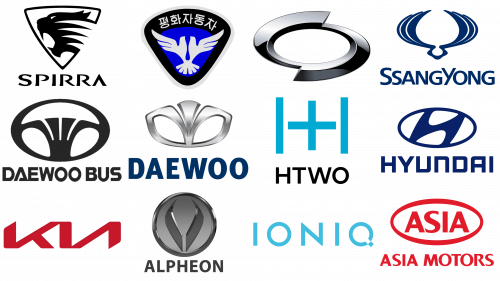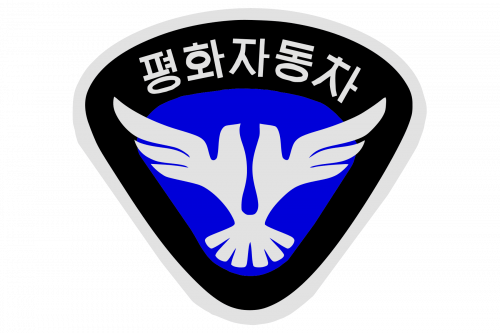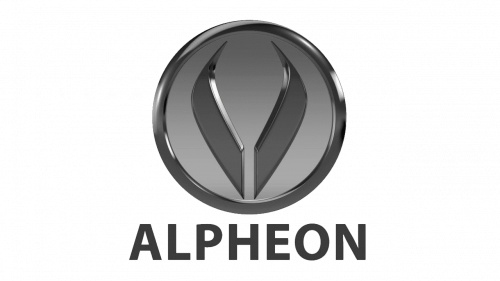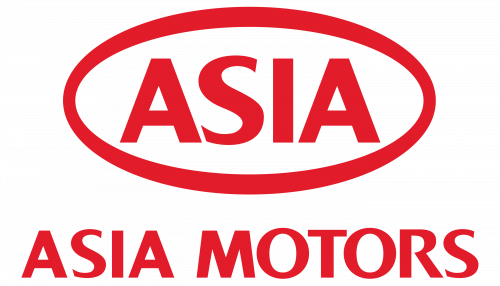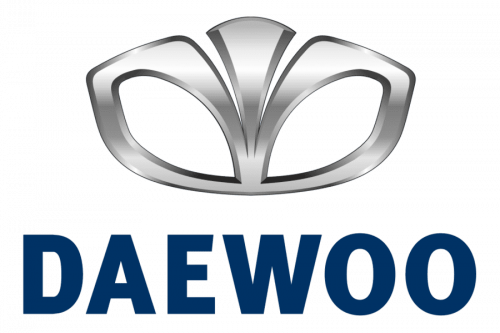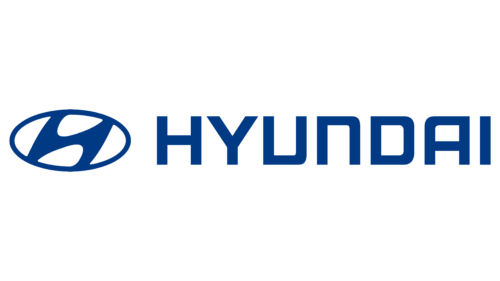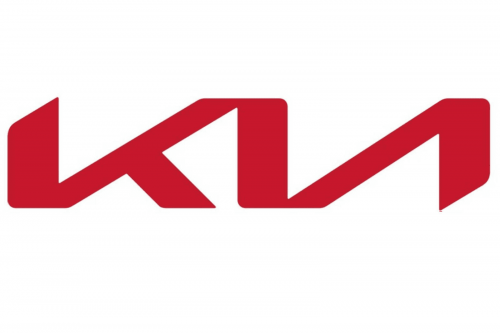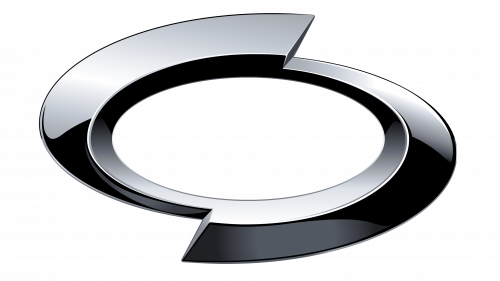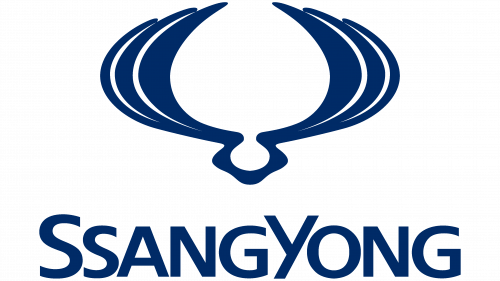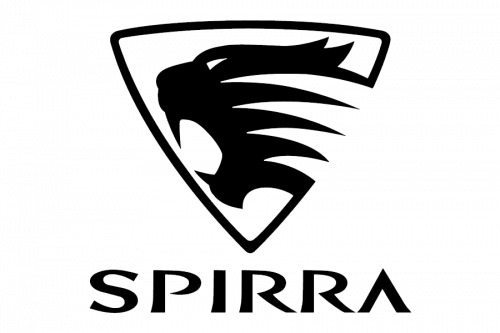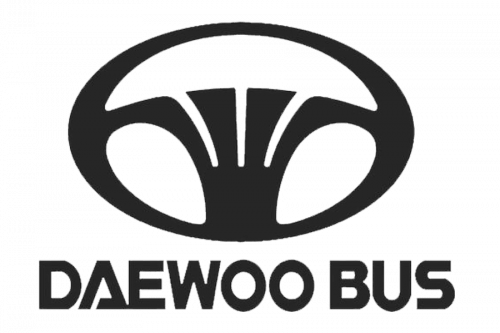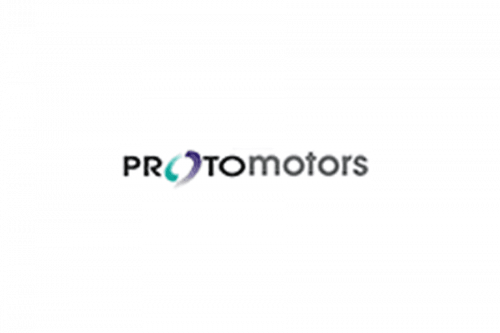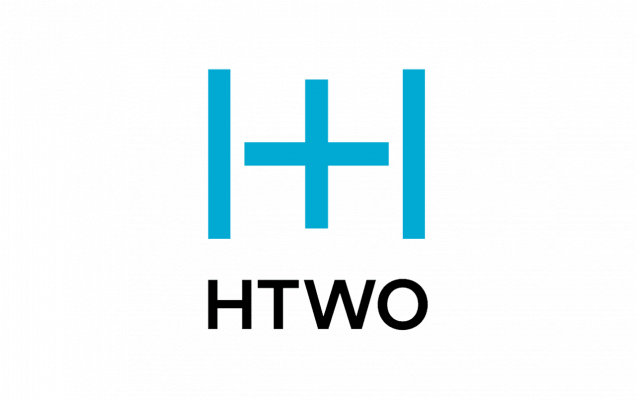South Korean is counted amongst Far Asia’s greatest car industries. Some of the world’s most lucrative car businesses, like Hyundai, Kia or Daewoo, are from here, despite the country’s miniscule size. And besides these three, the nation also has a lot more brands to offer.
Pyeonghwa Motors
Pyeonghwa is one of the few internationally present North Korean carmakers. It was founded in 1998 and was for some time a business owned by North and South Koreas. They primarily build small cars and microvans that would be affordable for locals and wherever they are exported. The logo is a black badge with a blue core. In the middle, they’ve placed a two-bodied pigeon – a symbol of peace between the two Koreas. In the black space above, the company name is written using the Korean letters.
Alpheon
Alpheon was a version of Buick LaCrosse, sold in Korea in 2010-15. It was an independent manufacturer under General Motors, which explains its prominence. Alpheon is an executive sedan of average size. Alpheon also had its own logo. It was a round figure with a pair of clippers depicted inside (in a simplistic fashion). The word ‘Alpheon’ was usually written along the round outline, with huge gaps in-between.
Asia
Asia Motors was a South Korean carmaker, active between 1965 and 1999. The company was owned by Kia and largely built vehicles from other brands. That included models of Fiat, Kia and Mazda. Some cars, like Asia Rocsta, were developed specifically for the brand, but these are the minority. The logo was an oval shape with the word ‘Asia’ written inside it. The font was a normal sans-serif style. The color scheme was preferably red.
Daewoo
Daewoo Motors is a car brand from South Korea, active until 2011. After that, all production of Daewoo vehicles was stopped in favor of American GM models (Chevrolet, primarily). The models built before then were mostly compact and subcompact cars, with some notable exceptions. Their logo is a vaguely oval shape that looks like a flower, but is actually a stylized seashell. The colors are usually metallic. The ‘Daewoo’ wordmark is sometimes written alongside the logo in big, blue letters.
Hyundai
Hyundai Motor Company is a South Korean carmaker, founded in 1967. It’s the biggest such company in Korea and is amongst the country’s biggest businesses. The production mostly focuses on crossovers and compact cars, plus some high-performance and luxury models. Their logo is an oval with the letter ‘H’ pressed into it. The latter is a stylistic depiction, and it resembles ‘N’ more than anything. The coloring is usually dark blue nowadays.
Kia
Kia is a South Korean carmaker, founded in 1944. It’s amongst the biggest car manufacturers in Asia. The company concentrates its effort on production of crossovers, compact crossovers and city cars. Their modern logo depicts the word ‘KIA’, written inside an oval (usually red or black). This design is pretty minimalistic, which makes the lettering look like ‘КИ’. They basically fused the letters together and removed some parts, like the central bar on ‘A’.
Renault-Samsung
Renault Samsung Motors is a South Korean carmaker, founded in 1994. The company was originally controlled by Samsung, but much of the ownership passed to Renault since then. Now the company produces Renault crossovers and family cars. The logo is a circular metallic design. It looks like two horns, welded into a single form. As a result, the lines first increase and width, then abruptly diminish.
SsangYong
SsangYong is an automotive business from South Korea, founded in 1955. The cars they make are overwhelmingly variations of SUV. That includes all-terrain vehicles, compact crossovers and utility vehicles. Their logo depicts two curved wings, joined in the bottom. It looks like bird wings, but is actually a pair of dragons, as per the name of the company. The color is usually either blue of black.
Oullim Motors
Oullim was a South Korean carmaker, founded in 1997 and abolished in 2007. After that, their production was run by their new owner, Proto Motors. It included their only successful car, Oullim Spirra. This vehicle was produced even under Proto until their dissolution in 2017. It was a relatively small sports car with a V6 turbo engine. Spirra’s emblem is a triangular shape with a tiger’s head inside. It’s depicted as roaring with a wide-open mouth.
Zyle Daewoo Bus Corporation
Zyle Daewoo is a South Korean vehicle manufacturer, originally founded in 1955. Since 2002, it has been partially a Daewoo-owned brand. Since the beginning, they mostly produce buses, coaches and similar vehicles. Because of their special relationship with Daewoo, their logo has long been inspired by the classic Daewoo logo. This one, however, is light green, and not blue. Moreover, Zyle emblem is more of an oval than a circle.
Proto Motors
Proto Motors was a South Korean car manufacturer, active between 1997 and 2017. In this time, they primarily built sports cars, but also had other models in production. The company used to create vehicles of other brands, such as Kia and Oullim. Their logo is just the words ‘Proto Motors’, written in the usual sans-serif letters. The color scheme was black and grey for each word respectively. The very first ‘o’ in ‘Proto’ was designed as a tilted oval colored in blue and grey.
Ioniq
Ioniq is a South Korean car brand, launched in 2020. It’s owned fully by Hyundai as their branch of electric cars. The first car they released is a plug-in crossover, but there are plans to build full-sized electric cars, as well. The cars are notable for having futuristic exterior designs. Their logo is just the brand’s name, written in capital letters with some gaps in-between, the color is turquoise. The font is pretty normal, except the ‘tail’ on ‘Q’ is detached from the rest of the letter as a square floating nearby.
HTWO
HTWO is the young automotive brand, established by the South Korean Hyundai. This is a unique development of the company, specialized in the production of vehicles with the hydrogen fuel cell system. Along with the electric cars, the hydrogen ones are the cars of the future, and Hyundai is the world’s pioneer in its research.


